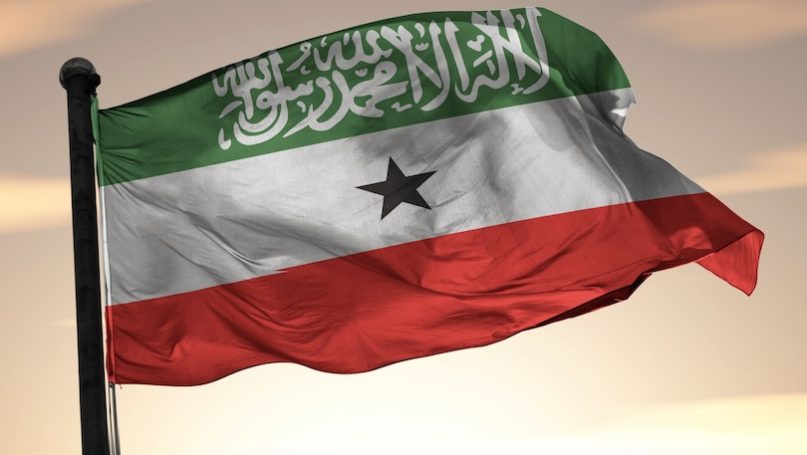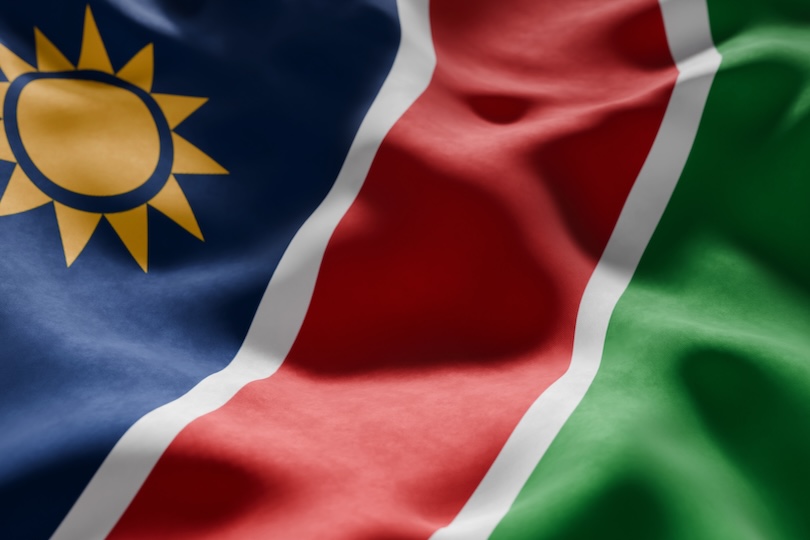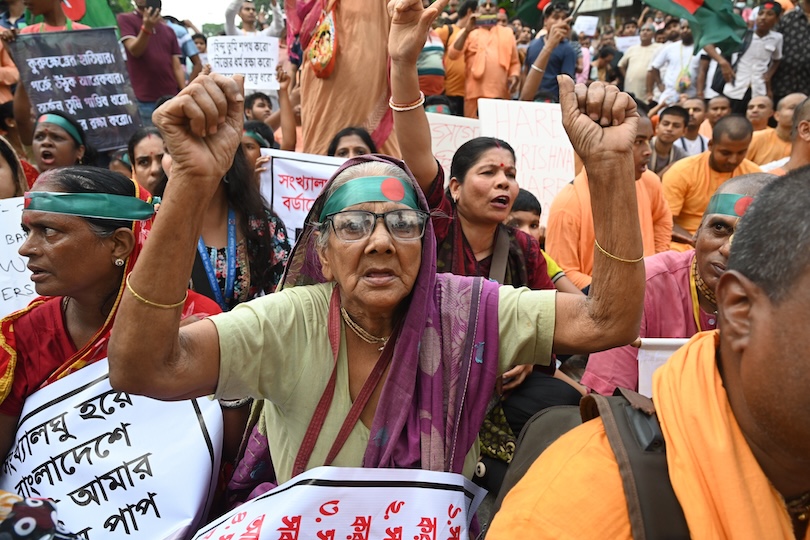
Maha Arts/Shutterstock
I served as international observer for Somaliland’s Presidential elections on 13 November 2024. With polls being delayed for two years, the incumbent President Muse Bihi Abdi of the Kulmiye party sought a final term in office against the opposition candidates, Abdirahman Mohamed Abdullahi of the Waddani party, and Faysal Ali Warabe of the UCID party. These presidentials, scored a turnout of over one million people with voters spreading across over two thousand polling stations. They marked the fourth election in the de-facto nation’s history. The Las Anod conflict to Somaliland’s east which had delayed the election, ubiquitous poverty, and finding some solution to Somaliland’s lack of international status- were key electoral issues.
Abdi’s campaign focused on gathering diplomatic recognition for Somaliland, while Abdullahi’s focused more on democratic reforms and social cohesion. Warabe’s concentrated on national unity. Somaliland’s representative to Kenya, M.A. Mohamoud, had created something of a news-storm during the election by referring to promised American support for the fledgling nation. Indeed Donald Trump, who had been elected as US President days prior, had been quoted by the Heritage Foundation as potentially backing Somaliland independence. The election was also set to decide if a controversial deal with Ethiopia offering the landlocked-nation sea-access via the Port of Berbera, in exchange for recognition talks, might be expedited. It was thus a potentially landmark election.
These long-awaited elections resulted in the surprise victory of Abdirahman Mohamed Abdullahi. Official results released on 19 November showed that Abdirahman won 63.92% of the vote, while incumbent president Muse Bihi Abdi received only 34.81%. The election was considered a landslide opposition-win. Waddani had been politically paralyzed for almost two decades. Abdullahi reacted in a conciliatory tone stating that “everyone had won” and that “no one was defeated”, and that it was “an election of brotherhood, aimed at unifying the people”.
The incumbent Bihi’s loss was attributed to personal unpopularity, caused by several contentious decisions, in particular the 1922 extension of his presidential-term, which had provoked riots, and conflict in the Eastern provinces. Undoubtedly also, Abdullahi’s deft diplomacy in marrying social improvement to these wider underlying issues of status-determination, proved to be a winning combination. Somalilanders were ripe for political change and not convinced that their situation would improve under four more years of Abdi. By comparison Abdullahi seemed to stand for something new, and in this case that outweighed the traditional advantages held by incumbent candidates on African political stages.
One of the stabilizing factors in the conduct of the elections was the widespread respect for the National Election Commission (NEC.) Established in 2001, it marks a cornerstone institution in Somaliland’s democratic journey. The NEC’s impact crystallized through its successful administration of the historic December 2001 constitutional referendum. This watershed moment not only ratified Somaliland’s national constitution but contributed to good signals abroad as to a new climate of democratic governance in the Horn of Africa.
One of the NEC spokespeople told me in conditions of anonymity:
From our side it was an effective operation without too many hitches. The Commission has pretty widespread respect now, and enables us to prevent election-related irregularities. Our basic procedures worked well. What worked less well were the Voter List technologies. IT failure in areas with intermittent power undermine the overall image. If we stuck to simple paper-and-pen elections there would not be such failure of technology. The state thinks technology makes the public believe the election is fairer. But it has the opposite effect when the technology fails and the people automatically think the state or some party is manipulating it. So, actually, a less technical election might have fewer bad reports.
Civil society organisations expressed less optimism about the changes brought by these elections. Reflecting the fact that Somaliland has a way to go before consolidating its NGO community, domestic observers were scarce. I spoke to a leading civil society activist on conditions of anonymity:
This does not actually mean very much in the way of power change. All it really means is a new crew in the Presidential office and a new set of power-makers, but impacts on Somaliland society are likely to be few and far between. Everything is relative here. It would not be hard for Abdullahi to look a bit more progressive alongside Abdi- but nothing much has changed. Civil society cannot expect very much in the way of loosening of state controls or societal freedoms. Life here is still very much a straightjacket, and if you complain about it, the first thing the opposition is told is go to next-door (Mogadishu) where it is bloody anarchy.
Naturally the successful party highlighted the way ahead for Somaliland. A spokesperson in Abdullahi’s office told me:
This is a leap forward. A chance to move Somaliland forward and to forge better links with our supporters in the west. Only a few times in life does such an opportunity come along and the President is poised to make the best possible use of this opportunity to create a new Somaliland which is closer to the west and within touching distance of recognition.
From Abdi’s side came a begrudging concession from one of his Hargeisa-based , party-organizers:
The odds were planted heavily against us and there was such a campaign to undermine us that even our most solid supporters were confused and nervous about this election. The western media, such as it is, chose not to report all the dirty tricks and manipulation that went on behind the scenes. As for our own media- well it had become less relevant as time has passed. However, a warning- it is all very well; to win an election- but an entirely different thing to win a country.
To gauge something of the real experience of the people of Somaliland, we undertook interviews among those working at the coalface in urban and rural Somaliland. A medical doctor running a small clinic in the town of Gebilay said:
I am not a political person but whatever happens in Somaliland, we need to do something about the continuous health crises that sweep us here. Out hospital system is so weak, people might as well die in the street. It is impossible for a poor citizen to see a doctor. When one of the foreign clinics pays a visit to a remote area, they find illnesses that you barely see anywhere else in the world. Types of infections which have become untreatable outside a modern hospital. If you got seriously ill in Somaliland now the only possible option is medical evacuation. I doubt if we have even basic vaccines like rabies or medicines for acute fevers. Most people outside Hargeisa live their lives without ever receiving medical care, suffer needless and chronic health problems and pitifully short lives…Maybe the new President would turn his hand to doing something about that…I guess he cares more about his own medical evacuation if he gets sick.
A college professor in Berbera offered a more balanced account of the implications of this election:
Somaliland declared independence from Somalia in 1991 amid a descent into conflict and has since sustained its own government, currency and security structures despite not being recognized by any country in the world. Over the years, it built a stable political environment, contrasting sharply with Somalia’s ongoing struggles with insecurity. This election is a further step forward.
Murithi Mutiga, program director for Africa at the Crisis Group, added “this result and especially the credible electoral process resulting in a peaceful transfer of power will consolidate Somaliland’s reputation as one of the more stable democracies in the Horn of Africa.” There was formal support on election outcomes from the US Embassy: “Somaliland’s impressive record of elections and peaceful transfers of power is a model for the region and beyond.” However, it must be noted that Somaliland’s latest agreement with neighbouring Ethiopia — granting Addis Ababa access to the Indian Ocean in exchange for recognition — has caused political tension with Somalia, which accuses Ethiopia of undermining its territorial integrity.
The new opposition urges more economic benefits to Somaliland from the agreement and criticized how it was hurriedly and secretly negotiated. It remains to be seen what Abdullahi’s Waddani Party will achieve in government. There are concerns about how much benefit the controversial agreement with Ethiopia holds for Somaliland, as noted to the Associated Press by Mohamed Husein Gaas, the director of the Raad Peace Research Institute in Somalia’s capital, Mogadishu.
However, Somalian political leaders have expressed optimism for better relations between the country and the breakaway region, including former PM Hassan Ali Khaire, who hoped the president-elect would “take a leading role in strengthening the brotherhood and unity of the Somali people.” Significantly there was no post-election violence. It would be an exaggeration to say that the road ahead seems smooth, but without question Somaliland has taken gradual steps from a long history of endemic and brutal clan enmity, towards a form of peaceful democratic transition.
Further Reading on E-International Relations
About The Author(s)
Martin Duffy has participated in more than two hundred international election and human rights assignments since beginning his career in Africa and Asia in the 1980s. He has served with a wide range of international organizations and has frequently been decorated for field service, among them UN (United Nations) Peacekeeping Citations and the Badge of Honour of the International Red Cross Movement. He has also held several academic positions in Ireland, UK, USA and elsewhere. He is a proponent of experiential learning. He holds awards from Dublin, Oxford, Harvard, and several other institutions including the Diploma in International Relations at the University of Cambridge.
Before you download your free e-book, please consider donating to support open access publishing.
E-IR is an independent non-profit publisher run by an all volunteer team. Your donations allow us to invest in new open access titles and pay our bandwidth bills to ensure we keep our existing titles free to view. Any amount, in any currency, is appreciated. Many thanks!
Donations are voluntary and not required to download the e-book - your link to download is below.

 Movie
Movie 3 weeks ago
17
3 weeks ago
17 






![Presidents Day Weekend Car Sales [2021 Edition] Presidents Day Weekend Car Sales [2021 Edition]](https://www.findthebestcarprice.com/wp-content/uploads/Presidents-Day-Weekend-car-sales.jpg)



 English (United States)
English (United States)